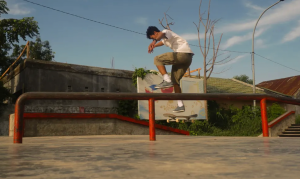Responding to the ongoing refugee crisis playing out across much of Europe, Pope Francis announced this week that Vatican City will take in two refugee families, and shelter them in the micronation’s pair of parish churches.
Speaking this past Sunday, Francis addressed the crisis directly, explaining:
“Faced with the tragedy of tens of thousands of refugees who flee death from war or hunger, on a journey towards the hope of life, the Gospel calls to us and asks us to be close to them, to the smallest and the abandoned; to give them real hope. Not merely to say; ‘be brave, be patient’. Christian hope is assertive, with the tenacity of those who go towards a certain destination”.
In that spirit of not simply being brave, nor patient, Pope Francis urged immediate action in addressing this crisis. He implored every Catholic community across Europe to do as he has, and commit to hosting a refugee family, themselves:
“Therefore, as we near the Jubilee of Mercy, I wish to address an appeal to the parishes, religious communities, monasteries and shrines throughout Europe to express the concreteness of the Gospel and to welcome a family of refugees. A concrete gesture in preparation for the Holy Year of Mercy. May every parish, every religious community, every monastery and every shrine in Europe host a family, starting with my diocese of Rome”
The Associated Press points out that, should Italy’s roughly twenty seven thousand parishes to all take up Francis’ call to shelter families, it’s conceivable that they could ultimately shelter nearly all the approximately one hundred and twenty thousand refugees that country has taken in. The Vatican, meanwhile, is reportedly still in the process of determining which families they will host.
Pope Francis’ call comes as part of his ongoing preparations for the upcoming “Jubilee Year of Mercy,” which will last from December 8, 2015 through November 20, 2016. The year, which falls upon the 50th anniversary of 1965 conclusion of the second Vatican council, is intended to highlight instances of forgiveness, as well as encourage reconciliation between rivals and enemies. To that end, the Pope has announced a number of radical changes to Church guidelines, including those regarding marriage annulments. He has also given priests the authority to absolve parishioners for having had abortions–a right ordinarily reserved solely for bishops.







